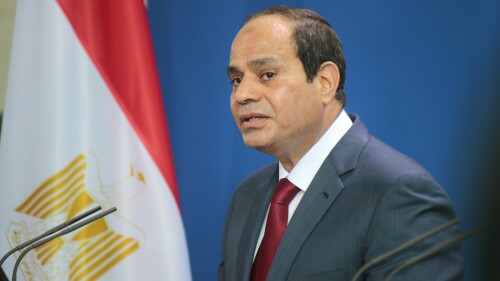Originally published under the title “The Nature of Quaker Education.”
The Quakers have evolved over the years from opposing war to opposing Israel’s existence. |
Unwittingly, Friends’ Central School in Wynnewood, PA, a well-regarded Quaker establishment, has once again come under fire for its ties to the Boycott, Divestment and Sanctions (BDS) movement supported by the American Friends Service Committee (AFSC).
The school operates in accordance with the Quaker philosophy of “simplicity, peace, integrity, community, equality and stewardship. Underlying all facets of School life is the belief that ‘there is that of God in everyone.’ Meeting for Worship is central, providing time for connections among members of the community and between individuals and their spiritual sources. Peaceful resolution of conflicts, seeking truth and collaboration are key aspects of a Friends’ Central education.”
The Quakers have cultivated their image as peaceful and supremely benign. Few suspect, much less know, that one of their central missions is promoting the BDS movement that opposes Israel’s existence.
The Quaker experience in the Middle East was unique; they provided relief to Palestinian refugees in 1949-1950 but withdrew after the United Nations took over. The Friends also spearheaded religious diplomacy about the fate of Jerusalem, which was besieged and divided during the war of 1948. Though the mission was unsuccessful, and Jerusalem would remain divided until 1967, their efforts were characterized by the scrupulous evenhandedness and appeals to the religious sensibilities of Christians, Muslims and Jews.
The Quakers play a leading role supporting BDS on university campuses.
Building on this and a long history of opposing Israel, it is no surprise that the AFSC is one of the leading organizations supporting BDS on university campuses and through support to various groups like Students for Justice in Palestine and Jewish Voice for Peace, which spearhead the movement.
Enter Sa’ed Atshan, an assistant professor of peace and conflict studies at Swarthmore College who is also, not surprisingly, a well-known advocate for BDS. Atshan had been set to appear at Friends’ Central but his talk was canceled after his BDS ties were exposed to the administration by parents who found the scheduled presentation to be biased and one-sided.
Atshan has also been active with SJP, whose parent organization, American Muslims for Palestine, was recently shown to be connected to the same American Muslim Brotherhood supporters who funded Hamas through the Holy Land Foundation, and which has trained its activists in “Countering Normalization of Israeli Oppression on Campus.”
Atshan is a poster child for Quaker education, an alum of the Quaker school in Ramallah who now teaches for the same Quaker school he attended as an undergraduate. In many regards, he represents the Quaker echo chamber regarding the Israeli-Palestinian conflict that ensures that only the Palestinian narrative will be voiced.
Friends’ Central canceled an appearance by Swarthmore College professor Sa’ed Atshan, a staunch BDS advocate, in February. |
Predictably, once Atshan’s appearance was canceled, students protested; some expressed their “disappointment and dismay” while others walked out of the meeting after the announcement. Jewish students and parents will thus bear the blame for the cancellation. But the fact is that they fell into a not very clever trap: Either shut up and accept a biased speaker, or protest and take the heat, whether the talk was canceled or not. This is one of the basic tricks of the BDS movement.
In turn, this incident will undoubtedly transform into a conversation on free speech and academic freedom but pedagogically, the bigger concern is that pro-BDS individuals who use hate and racist speech will use and abuse academic freedom, whether it is academic or not.
This freedom to critique is, predictably, directed mostly at the twin Satans, Israel and America, although efforts to curtail speech that academics find unpleasant and unacceptable have been longstanding in the form of “speech codes” and restrictions on “hate speech.” Clearly academic freedom is a one-way street; only those having the correct opinions may claim it.
Historically, the AFSC has adopted a hypocritical form of pacifism. It claims to oppose violence, but in practice engages in apologetics for terrorism. It claims to want peace for both sides, but inevitably advocates only for the Palestinians, often in extremist terms. And it has moved closer and closer to a retrograde, supersessionist theology that has been the basis of Christian anti-Semitism for centuries.
The once-noble American Friends Service Committee has embraced an ignoble cause.
The AFSC’s relationship to Israel is tragic; a once-noble organization has not only embraced an ignoble cause, but has betrayed its own founding principles in the process.
The AFSC appears to regard its support for the BDS movement as righteous. As it puts it, its advocacy of BDS is “contextualized by Quakers and AFSC’s long support for boycotts, divestment and sanctions as economic tactics that appeal to human conscience and change behavior,” relating this to its opposition to slavery, segregation, apartheid and other reprehensible phenomena.
But it also betrays itself by claiming to support, in accordance with its “principles and history,” all “nonviolent efforts to realize peace and justice in Israel and Palestine,” even though this is demonstrably not the case, and has not been for years, given its support for Palestinian groups that both advocate and practice extreme forms of violence.
Many Jewish parents send their children to Quaker schools seeking to instill values they find analogous to those represented by Judaism, especially since the Quakers and their schools have substituted “social justice” for traditional liturgy. But Jewish parents should be encouraged to do more research on the Quaker approach and then decide whether Jewish values and Quaker values, as they exist today, are the same.
Asaf Romirowsky is the executive director of Scholars for Peace in the Middle East and a fellow at the Middle East Forum.









